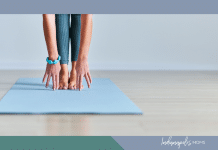 It’s back-to-school night, and I’m in a fog of anxiety and overwhelm. I walk into the kitchen, determined but determined to do what? I’ve already forgotten by the time I arrive. Ah, I went into the kitchen to get our water bottles! It’s hot and going to be a long night. There won’t be food or drinks because of the COVID precautions. Wait, do they have masks? We need those too. The washing machine is broken. We probably don’t have any clean. Do we have disposables that fit the kids? What will we eat? When will we eat? We have to make it to two different schools in two hours…We’ll figure that out later. It’s time to go! We’re already late. I hand the bottles to the kids and say, “Take them to the….” I’m staring at them. I can’t find the words. “To the…now I’m feeling irritated. I want them to finish my sentence. They know what I mean! “The car!” The ticker tape just keeps running. Everything feels urgent and important. There’s so much. No list can keep all of the to-dos.
It’s back-to-school night, and I’m in a fog of anxiety and overwhelm. I walk into the kitchen, determined but determined to do what? I’ve already forgotten by the time I arrive. Ah, I went into the kitchen to get our water bottles! It’s hot and going to be a long night. There won’t be food or drinks because of the COVID precautions. Wait, do they have masks? We need those too. The washing machine is broken. We probably don’t have any clean. Do we have disposables that fit the kids? What will we eat? When will we eat? We have to make it to two different schools in two hours…We’ll figure that out later. It’s time to go! We’re already late. I hand the bottles to the kids and say, “Take them to the….” I’m staring at them. I can’t find the words. “To the…now I’m feeling irritated. I want them to finish my sentence. They know what I mean! “The car!” The ticker tape just keeps running. Everything feels urgent and important. There’s so much. No list can keep all of the to-dos.
I am not used to this foggy feeling. I am, typically, a very organized and articulate person. That’s just it, though. I am not feeling like myself. With all of the shifts we’ve had to make over the last year, the pace seems relentless, but it doesn’t have to be. I’ve recently been inspired by others who have permitted themselves to slow down. So I am going to try it and hope you will too!
Barriers to slowing down
Why do we feel the need to ask for permission to slow down? Fear of disapproval from our spouse, family, friends, or coworkers often guides our decision-making. It’s easy to get carried away with all we “should” do rather than what we truly need. Rarely do we say “I should” about things we feel totally aligned with. The next time your thought starts with “I should” see that as a red flag. There are consequences to going too hard for too long.
Consequences of not slowing down
Busy culture can have ramifications on our emotional, mental, physical, and spiritual health. Anxiety, depression, mental fog, and a host of other health challenges can stem from feeling a need to gain permission to slow down from others. When we struggle with giving ourselves permission to slow down, we lack trust and agency. We can get lost and feel hopeless about our ability to live a life we love. Our bodies know when we need to slow down. We often let our brains override that and, when we do, we get hurt. Our body signals the boundary. When we are holding our breath, clenching our fists, getting stomach aches, or losing sleep–something isn’t right. It’s time to declare and enforce a boundary. In other words, trust your gut.
Practical ways to slow down
Unplug. Consider taking a hiatus from social media, email, texting, and even your smartwatch. After all, almost everything will work again if you unplug it for a few minutes, including you. We can do this in a friendly and firm way. Lately, I have been using some version of this out of office email:
Hi!
I’m sorry to miss you. I am stepping away from work to spend a few restorative days with my family. I will return ready to pick up where we left off next week.
In the meantime, check out these resources that may be helpful to you, stay in touch, or even catch up with me at:
I link out to the publications for which I write
Any recorded resources I offer through work
And more passive, less time-sensitive, platforms to interact like my LinkedIn
If this is urgent, you can schedule a meeting (insert calendar link) for when I return. Thank you so much, and I look forward to talking to you soon!
This is direct and sincere. I do look forward to catching up when I return because I’ve taken a real break.
If unplugging seems impossible, consider limiting your availability.
Limit your availability. There is a pretty universal expectation for us to be available and responsive almost instantly. I have a close friend that reacts with a “?” to any text that I don’t answer within a few minutes. I imagine many others would like to do this but resist the temptation. Being “on” all the time can create a spike in our cortisol levels and cause stress. Time blocking, clarifying expectations with your voicemail greeting, setting boundaries around when we are available is another way we can slow down. Recently, I have recommitted to blocking my calendar to reflect all I truly need to do, including eating, traveling to and from the meeting, completing specific tasks, etc., rather than limiting it to just my meetings. When someone requests time, I have been offering this response.
It’s great to hear from you. Thanks for reaching out. I am eager to catch up! My calendar is updated below. Just grab a time that works for you.
I look forward to it!
Be still. Many of us feel the need to be constantly productive. My husband frequently comments on the weekends that I haven’t been still for even one minute. We need to be still. When I take the time to meditate for a few minutes before I get out of bed, I can visualize how I would like my day to go, and it’s surprisingly effective. It helps me organize my priorities and feel more connected to myself and my personal goals for the day.
Try taking a pause the next time you feel overwhelmed and breathe in “I am” and breathe out “enough” (or whatever word works for you!)
Take a step towards restoration. We know that stress lives in the body. We know that we need more sleep and less alcohol, more exercise, and less processed food. And yet, I find myself using a glass of wine as a shortcut to self-care or skipping exercise because I let a meeting run long. Doing it all at once is overwhelming. That adds a lot to the ticker tape.
Pick a place to start–one place–and go from there. I am starting with food by using a meal planning service that is integrated with grocery delivery.
As we find our new normal, I hope you will join me and give yourself permission to slow down. I think once we do, we may be surprised by what we see when the fog clears.








